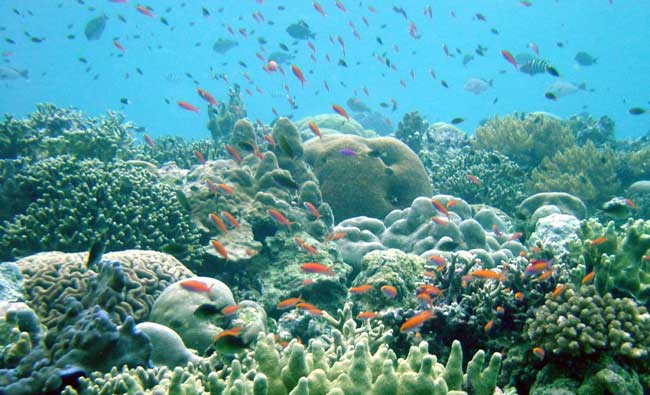Study: Marine Species Collapse by 2048

If the loss of marine species from over fishing and climate change continues at the current rate, all commercial fish and seafood species could collapse by 2048, scientists reported today.
Analyzing all existing historical, experimental, and fishery data on ocean species and ecosystems, researchers found that in addition to distressing a major food supply for humans, the loss of marine life could disrupt biodiversity on a global scale.
"Whether we looked at tide pools or studies over the entire world's ocean, we saw the same picture emerging," said lead author Boris Worm of Dalhousie University. "In losing species we lose the productivity and stability of entire ecosystems. I was shocked and disturbed by how consistent these trends are—beyond anything we suspected."
In 32 small controlled experiments, Worm and his co-authors found that higher diversity of marine life led to greater ecosystem stability. They combined these results with observational studies from 64 large marine ecosystems, global catch data of all fish and invertebrates worldwide from 1950 to 2003, and12 coastal regions over a millennium.
"We see an accelerating decline in coastal species over the last 1000 years, resulting in the loss of biological filter capacity, nursery habitats, and healthy fisheries," said co-author Heike Lotze of Dalhousie University, Canada.
In addition to a decline in food supply, damage to the oceans results in harmful algae blooms, oxygen depletion, and ocean flooding.
"For generations, people have admired the denizens of the sea for their size, ferocity, strength or beauty. But as this study shows, the animals and plants that inhabit the sea are not merely embellishments to be wondered at," said Callum Roberts, a Professor at the University of York, who was not involved in the study. "They are essential to the health of the oceans and the well-being of human society."
Sign up for the Live Science daily newsletter now
Get the world’s most fascinating discoveries delivered straight to your inbox.
Although the study paints a gloomy picture of a typically colorful world, the researchers say the trend can be reversed if conservation measures are taken fast enough.
An examination of 44 protected marine reserves and four fishery closures, for example, showed a 23 percent increase in species richness and a fourfold increase in fish productivity.
"The data show us it's not too late," Worm said. "We can turn this around. But less than one percent of the global ocean is effectively protected right now. We won't see complete recovery in one year, but in many cases species come back more quickly than people anticipated—in three to five to ten years. And where this has been done we see immediate economic benefits."
The study is detailed in the Nov. 3 issue of the journal Science.
- Images: Under the Sea -- Life in the Sanctuaries
- Fewer Fish Leads to Jellyfish Explosion
- Quarter of Species Gone by 2050
- Scientists Issue Dire Warning on Marine Life
- Images: Rich Life Under the Sea










